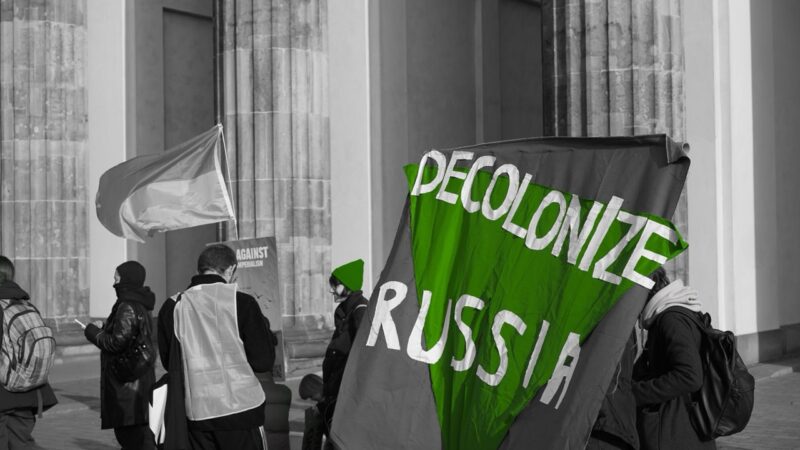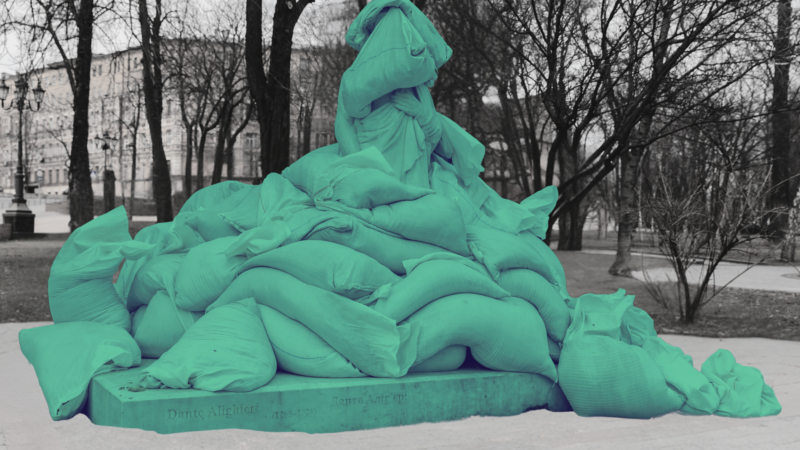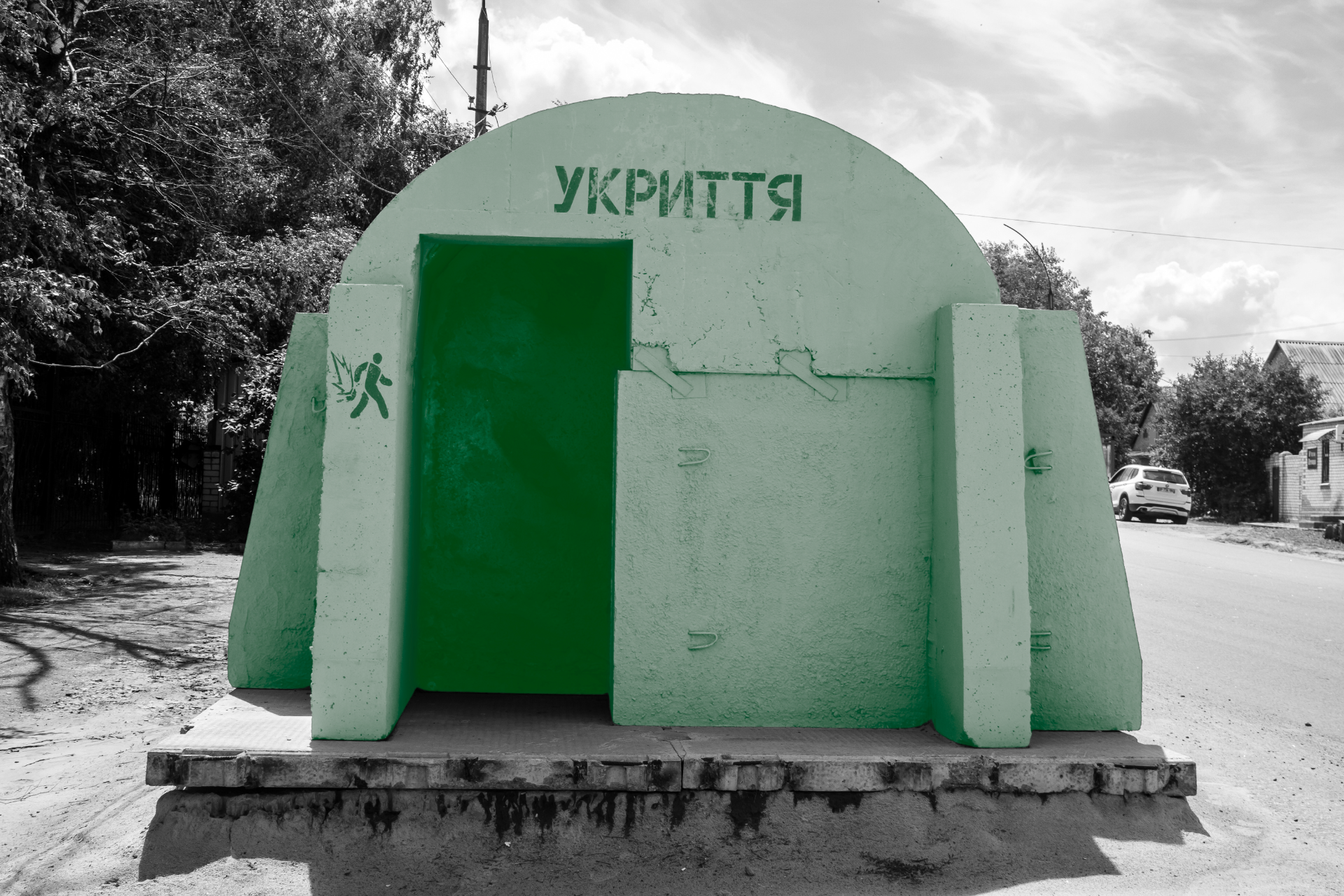The internal war: Corruption and the fight against corruption as a hurdle and yardstick for Ukraine’s EU accession
Summary
Corruption is seen by many in Ukraine as the biggest internal enemy that needs to be defeated—as does the present external enemy, Russia. In recent years, numerous anti-corruption reforms have been implemented. However, recent corruption scandals raise questions about the efficacy of these reforms. Especially in view of the envisaged EU accession process and the necessary and costly reconstruction after the end of the war, Ukraine must consistently continue the reform path it began after the Maidan, particularly of the judiciary. Otherwise, there is a risk of losing confidence not only among Ukrainian citizens—who today reject corruption like never before—but also among the international community, on which Ukraine currently depends more than ever.
Introduction
Corruption, which is often defined as the abuse of entrusted power for personal gain, is a global phenomenon. Ukraine is regarded as one of the most corrupt countries in Europe, as shown in the recently published Corruption Perceptions Index 2022, conducted by Transparency International (TI), with the country ranking 116th. Recent corruption scandals in two government ministries seem to confirm the impression of Ukraine being a thoroughly corrupt country. This perception is not quite correct, however, as Ukraine has improved its rating by 28 places during the last ten years. This is a direct result of the Maidan protests and the Revolution of Dignity in 2014. Since then, far-reaching reforms have been implemented, and independent and effective anti-corruption institutions have been created. These institutions now investigate even influential Ukrainian decision makers, who used to be considered untouchable.
Nevertheless, next to Russian aggression the fight against corruption is the biggest challenge for Ukraine. This will be true especially in the future, as the immense postwar reconstruction programs will create many opportunities for corruption. Therefore, it is of crucial importance to consolidate and strengthen the newly created anti-corruption infrastructure and to expand it—especially the judiciary, which has been largely unreformed to date. It is therefore no wonder that the European Union has included anti-corruption and judicial reforms in five of its seven conditions for accession talks with Ukraine. This reinforces the high expectations of the EU and of Ukrainian society that the Ukrainian government—especially president Zelensky—must implement further anti-corruption reforms.
Creating a comprehensive anti-corruption infrastructure after the Maidan
The widespread corruption in Ukraine has many causes. One of them is that after the country’s independence in 1991 Ukraine failed to establish a rule-of-law based order, where strong (anti-corruption) institutions prosecute and punish corruption. This only changed after the Euromaidan: the nationwide protests in late 2013, initially directed against President Viktor Yanukovych’s last-minute withdrawal from an EU Association Agreement, increasingly became directed against the corrupt Yanukovych regime. After he was removed by the Ukrainian parliament, public demands to finally take action against corruption brought to power an (initially) reform-oriented political leadership under President Petro Poroshenko. Another cause is Ukraine’s increased dependence on international financial aid because of the Russian annexation of Crimea and the war in the Donbas, with international lenders like the International Monetary Fund (IMF) making disbursement of loans conditional on reform progress. This “window of opportunity” has enabled the development of a momentum for reforms, including the establishment of a comprehensive anti-corruption infrastructure, which had not previously existed in Ukraine (and is unique in the post-Soviet space).
The foundation for these reforms was laid in 2014 with a new anti-corruption law, which mandated new institutions to be “islands of integrity,” independent of other lines of authority. Particular attention was paid to hiring new staff with high integrity. The management of new institutions was recruited in highly competitive, transparent selection processes supported by international experts (who had veto power)—an unprecedented and completely successful procedure in Ukraine.
The National Anti-corruption Bureau of Ukraine (NABU), established in 2015, is a new investigative authority, mandated to investigate corruption cases involving high-ranking state officials or large-scale corruption cases involving losses of more than one million hryvnias. The NABU has already opened more than 850 investigations, including against influential persons, and has continued its work unabated despite the Russian invasion (and the fact that even high-ranking personnel are currently serving in the Armed Forces of Ukraine).
Prosecution of cases that fall under the NABU’s jurisdiction is carried out by the Special Anti-corruption Prosecution Office (SAPO, also created in 2015), an independent unit within the Office of the General Prosecutor of Ukraine. While in the past corruption cases often got stuck in the corruption-prone prosecutor’s office, the SAPO has carried out more than 380 indictments and is continuing to work effectively.
A major weakness in the “anti-corruption chain” was Ukraine’s judiciary, which despite several prior attempts going back to the mid-1990s has remained largely unreformed and thus extremely vulnerable to corruption and undue influence. Only after massive international pressure led to the establishment in 2019 of the independent High Anti-corruption Court of Ukraine (HACC) did it become possible for cases investigated by the NABU and brought to trial by the SAPO to actually end up before an independent and competent court. In 2022, the HACC issued a total of 37 verdicts and sentenced 33 judges, politicians, and other high-ranking persons.
In addition to these institutional reforms, numerous other reform measures have been implemented in Ukraine. Among the most effective has been the introduction of ProZorro, a central electronic procurement platform. Developed as a civic initiative and subsequently made mandatory for public procurements, ProZorro has collected more than 7 billion US dollars for the state coffers to date through transparent procurement processes. Another example of positive reforms in the Ukrainian government is the introduction of e-declarations. All state officials and their closest relatives have to declare their assets online—a dimension of transparency that is unique in Europe. Ukrainian civic activists and the National Agency for the Prevention of Corruption (NAPC), the latter also newly founded in 2015, can track down suspected illegally acquired assets. These steps have helped to make Ukraine more transparent and to uncover corruption.
Thus, with the establishment of a comprehensive institutional infrastructure for the prosecution of corruption, combined with accompanying prevention and transparency measures, Ukraine has taken a significant step toward combating corruption more effectively. This development is gradually bearing fruit, as citizen experience of corruption has measurably decreased: namely, according to the Sociological Group Rating, before the reform process started, in 2013 27 percent of Ukrainians reported having paid a bribe in the past year, while by 2021 that figure decreased by one-third, with only 19 percent reporting having paid bribes. In the latest Corruption Perceptions Index, Ukraine has achieved its best ranking so far and is roughly on a par with other EU candidates such as Serbia, Albania, or Bosnia and Herzegovina.
Zelensky’s anti-corruption performance: Ambitious but ambivalent
Volodymyr Zelensky’s upset victory in the 2019 presidential election is partly explainable by the two main popular—some say populist—promises of his election campaign: to “end the war in the Donbas” and to fight corruption and oligarchy. Concerning the latter, the perception of the efforts of his presidency in this regard so far is mixed.
With the removal of parliamentary immunity—which had long been a ubiquitous and convenient way for many shady businessmen-cum-lawmakers to protect themselves from prosecution—Zelensky implemented a key promise shortly after taking office, ostensibly to prove that he was serious about Ukraine’s fight against corruption and oligarchy. Again, purporting to serve citizens who were frustrated by petty corruption in their dealings with state officials, Zelensky’s team digitized the public administration sector with great verve. For example, the e-services app “Diia” replaced enormous amounts of paperwork and simplified many administrative procedures. This not only modernized Ukraine’s public services and made them more efficient, it also made them more convenient for citizens and noticeably reduced this type of corruption. Diia became so successful that it is slated to be exported to other countries—among them Estonia, which itself is a leading country in terms of digitization.
President Zelensky seems determined to limit the influence of the Ukrainian oligarchs on politics and the media. In July 2021, against great resistance he pushed through a law on de-oligarchization. It remains to be seen whether Zelensky’s primary goal was disempowerment of the oligarchs—who due to the Russo-Ukrainian war have indeed lost large chunks of their assets and, with them, their influence—or perhaps it was suppression of potential opponents in order to secure political power (Zelensky personally cracked down particularly on Petro Poroshenko, who was his predecessor in office and is a likely challenger in the next presidential election).
Critics also accuse Zelensky of trying to secure control over key institutions by appointing “his” people. In March 2020, for example, he replaced the General Prosecutor Ruslan Ryaboshapka, who was considered (too) independent and competent, with Iryna Venedyktova, whose independence has been questioned by anti-corruption activists. Venedyktova came under criticism shortly after her appointment for allegedly blocking a corruption investigation against MP Pavlo Chalimon of Zelensky’s Servants of the People party (in January ’23, Chalimon was dismissed as deputy leader of the parliamentary group because of another corruption scandal). It was also Venedyktova who dropped the NABU investigation against the controversial deputy head of the president’s office, Oleh Tatarov, whom activists accuse of corruption. In July 2022, Venedyktova was replaced by Andriy Kostin—another Zelensky loyalist, who was accused by civic activists of sabotaging judicial reforms in Ukraine. In light of the persistence of corruption scandals in the current government, Zelensky’s personnel policy could also become a problem for the president himself.
Constitutional crisis and delayed judicial reform
Attempts to reform Ukraine’s judiciary after the Maidan failed due to a lack of political will and massive resistance within the judiciary itself. A constitutional crisis erupted on 27 October 2020, when the Constitutional Court declared key elements of the anti-corruption legislation—namely, e-declarations and the criminalization of illegal enrichment—as unconstitutional. After a public outcry, two days later Zelensky asked the parliament (unsuccessfully) to dissolve the Constitutional Court. In December, the parliament reinstated the anti-corruption laws. By decree Zelensky suspended the presiding constitutional judge, Oleksandr Tupitsky (who is himself under investigation for bribery) and annulled his appointment back in 2013 by Viktor Yanukovych. The Constitutional Court took revenge by declaring Zelensky’s actions unconstitutional in July 2021. To date, Ukraine’s constitutional crisis has not been resolved.
The scandalous rulings of the Constitutional Court are emblematic of the Ukrainian judiciary, which is formally independent and enjoys great protection under the constitution but is extensively influenced behind the scenes by political and business interest groups. In the summer of 2021 Zelensky introduced draft legislation to reconstitute the High Council of Justice (HJC), the main organ of judicial self-government, and the High Qualification Commission for Judges (HQCJ). After an initial blockade by representatives of the HJC, new appointments to both councils began—as before, with the involvement of international experts who are tasked with examining the integrity of candidates in addition to their professional qualifications. The newly appointed HCJ has already started its work, while the selection process of the HGCJ was still ongoing as of mid-March. It remains to be seen to what extent this will lead to improved selection, discipline, and sanctioning of judges.
A new law on the reform of the Constitutional Court attracted a lot of criticism. Contrary to the recommendations of Ukrainian civil society and the Venice Commission, the three international members of the selection commission for new judges were not granted veto power. Unlike the selection of the NABU leadership or the HACC, in the event of a stalemate, the Ukrainian members of the commission could overrule the international members. Experts have repeatedly warned that the government could impose its candidates in this way. Most recently, there was political wrangling over subsequent changes.
Corruption amidst war or war on corruption?
The war pushed the corruption topic perhaps into the background but not out of orbit, as the most recent corruption cases show that corruption and war have even intertwined. On 21 January 2023 the online newspaper Dzerkalo tyzhnia published an investigative report which revealed that food for the army was partly procured at inflated prices. Shortly afterwards, in another, unrelated case Ukraine’s deputy infrastructure minister Vasyl Lozynsky was arrested by the NABU for accepting a bribe of $400,000. Around the same time another media outlet, Ukraїns’ka pravda, reported on the luxurious lifestyle of Kyrylo Tymoshenko, deputy head of the Office of the President of Ukraine. Among other things, he came under criticism for using an SUV that had been donated for humanitarian purposes in the war zone.
At times of war, corruption in the military or in humanitarian aid is considered particularly problematic, both domestically and with the involvement of the international community. According to a recent USAID survey, Ukrainians themselves have never been so unequivocally against corruption: in 2022, 64% said that corruption is never justified under any circumstances, up from 40% in 2021. Even more important is that before the war, 40% were willing to report cases of corruption, while today the figure is 84%. Thus, the latest corruption scandals are not only perceived by the Ukrainian people as backsliding into old habits, they also weaken international trust in Ukraine and might jeopardize vital international (military) aid.
The Office of the President was aware of the precarious situation and reacted immediately. In his evening address, President Zelensky thanked journalists and investigating authorities for their work and announced consequences. In total, four deputy ministers, including the deputy defence and deputy infrastructure ministers, five oblast governors, Tymoshenko, and deputy prosecutor-general Oleksiy Symonenko were dismissed, as was the head of the procurement department in the defence ministry. Furthermore, in early February oligarch Ihor Kolomoisky’s house was searched in connection with the embezzlement of almost €1 billion from the major oil and gas producer Ukrnafta and the pipeline operator Ukrtransnafta, in which the oligarch had had a stake until their (re)nationalization last year. And at the end of February, parliamentary deputy Oleksandr Trukhin of Zelensky’s party lost his mandate after being found guilty by the HACC of corruption in connection with a traffic accident.
The quick reaction of Zelensky and the decisive action of the Ukrainian authorities were perceived positively by the international community. The crucial question now is how Ukraine can balance its legitimate security concerns with a high level of transparency so that investigators, journalists, and civil society experts can continue their fight against corruption. This includes government contracts, such as those of the Ministry of Defence, as well as e-declarations, which were suspended after the full-scale invasion due to security concerns (a decision that is increasingly criticized). Announcements by defence minister Oleksiy Reznikov to quickly optimize procurement and to impose further consequences for violators can only be a first step.
Prospect of EU membership as a reform incentive
Shortly after the beginning of the full-fledged Russian invasion, Ukraine officially applied for EU membership (after having stepped back from the threshold of signing an accession agreement in 2013). In June 2022 the historic decision was taken to grant Ukraine candidate status, despite scepticism from some member states. Seven conditions were attached to the accession negotiations, five of which related to fighting against corruption and to judicial reform. The EU Commission is currently examining how far Ukraine has come with implementation. The first results are to be presented in the coming spring. The New Europe Center, a Ukrainian think tank, has attested to noticeable progress in recent months but also sees room for improvement.
Ukraine’s EU candidate status has already brought a new impetus to the country’s anti-corruption efforts. In fulfillment of one of the seven conditions, the long-vacant Special Anti-Corruption Prosecutor (SAPO) has been finally appointed. Oleksandr Klymenko, who had been selected by the selection committee long before but whose appointment was blocked politically, was previously a high-ranking NABU detective and made a name for himself investigating high-ranking officials and oligarchs, such as Roman Nasirov, Oleksandr Onyshchenko, and Oleh Tatarov.
Selection of the head of the NABU was another EU demand. The previous director, Artem Sytnyk, was said to be doing a good job but his term ended last year. After a multi-stage selection process, in which the integrity and leadership experience of the applicants were examined in addition to their professional qualifications, the Cabinet of Ministers of Ukraine appointed Semen Kryvonos as the new head as of 6 March 2023. According to the English-language Kyiv Independent newspaper (formerly the Kyiv Post), there are doubts about his integrity, his proximity to the presidential office, and his limited experience, which are viewed critically by civil society. On the other hand, Kryvonos built his reputation as a reformer working for Mikhail Saakashvili, who successfully fought corruption as Prime Minister of Georgia and was also governor of Ukraine’s Odesa oblast in 2015–16. Earlier, there had been similar doubts about Kryvonos’ predecessor, which Sytnyk dispelled by publically tackling high-ranking officials. Now Kryvonos has to prove himself, since the head of the NABU is a key person in the country’s fight against political corruption.
As reconstruction after the end of the war will be a herculean task, which will be prone to corruption, the appointment of Mustafa Nayyem as the new head of the Ukrainian Agency for Reconstruction and Infrastructure is a positive sign. The former investigative journalist and politician enjoys a reputation of integrity and has already gained experience in the Ministry of Infrastructure in recent years.
The EU’s other criteria include screening candidates for the HCJ and HQCJ, amendment of the laws against money laundering, and a strategy to reform law enforcement agencies, as well as implementation of the anti-oligarch law and the reboot of the Constitutional Court of Ukraine. Fulfilling these conditions and a comprehensive review by EU and Ukrainian experts will show whether the initial positive impetus generated by EU candidate status will continue and serve as an incentive for further anti-corruption reforms. President Zelensky should use the present momentum—Ukrainian society is united as never before, and international interest and support are greater than ever—and fulfill his rhetorical announcements that there is “no going back” to the old days with further action. Only if there are further vigorous measures and successful steps in the fight against corruption will it be possible to convince EU officials that Ukraine is indeed a serious EU candidate.
Conclusion and outlook
Despite an unsteady reform process, in which two steps forward are often followed by a step back, Ukraine has made significant progress in the fight against corruption in the past 10 years. What was considered unthinkable before the Maidan is now a reality: newly created anti-corruption institutions are investigating previously “untouchable” influential officials and businessmen. However, corruption investigations and proceedings are often complicated and lengthy; thus, the results of anti-corruption reforms are often seen not immediately but rather after some time has passed. Nonetheless, Ukraine’s direction is right, and overall the positive developments outweigh the setbacks.
It is now necessary to continue on this path to prevent renewed roll-backs, and to scale up the “islands of integrity” such as NABU or HACC into nationwide “landscapes”. This means, for example, that lessons learned should be taken into account when reforming and appointing other important agencies and courts. In addition to the expertise of high-ranking officials, their integrity plays a key role. The successful inclusion of external international experts in selection processes should become standard.
Even before the envisaged EU accession, which will presumably take years, there is already a lot of potential for successful cooperation between the EU and Ukraine. The EU has gained experience with previous accession candidates that had to implement similar anti-corruption reforms. Furthermore, it has functioning institutions such as the European Public Prosecutor’s Office (EUStA), European Anti-Fraud Office (Olaf)) and levers of influence (conditioning) to actively support the further reform process in Ukraine. On the other hand, Ukraine can offer the EU viable solutions for more transparency and effective state services in the form of the Prozorro or Dija apps.
With the unwavering support of the EU, Ukraine can manage to break out of the post-Soviet “swamp of corruption, informality, and oligarchy.” It would be not only an important internal victory for Ukraine but also one against the external aggressor Russia, which always used corruption and informal networks to exercise power over Ukraine. Thanks to the newly established anti-corruption infrastructure, active grassroots civil society, unprecedented international support—and, sadly enough, the high toll in spilled blood, due to which corruption is no longer tolerated—Ukraine now has a unique opportunity that politicians should seize.
A German version of this article was previously published in Ukriane-Analysen 280, https://www.laender-analysen.de/ukraine-analysen/280/der-innere-kampf-korruption-und-korruptionsbekaempfung-als-huerde-und-gradmesser-fuer-den-eu-beitritt-der-ukraine/.





